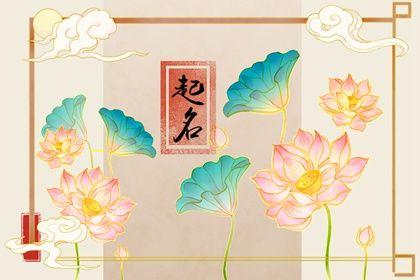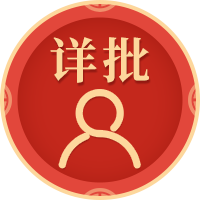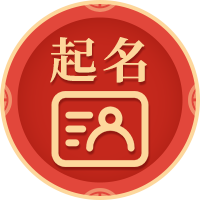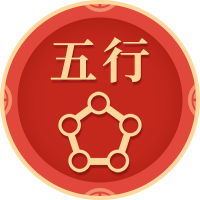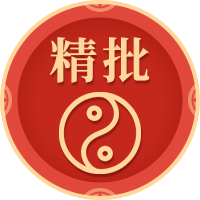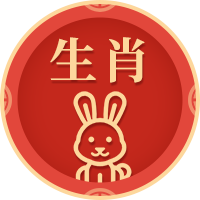如何从古诗词中选取寓意好的名字呢
- 作者: 李珺颜
- 来源: 投稿
- 2024-09-24
一、如何从古诗词中选取寓意好的名字呢
从古诗词中选取寓意好的名字的方法:
1. 查找具有积极含义的词语:
吉祥如意:福、禄、寿、喜、财
品德高尚:仁、义、礼、智、信
才华出众:文、武、才、艺、德
健康长寿:康、健、寿、安、宁
2. 结合诗句意境:从诗句中提取意境优美、寓意深刻的词语,如:
"明月松间照,清泉石上流"(王维《山居秋暝》)
"春风不度玉门关"(王之涣《凉州词》)
"洛阳亲友如相问,一片冰心在玉壶"(王昌龄《芙蓉楼送辛渐》)
3. 考虑字音字形:选择字音悦耳、字形美观的词语,如:
"清"(清澈、纯净)
"雅"(高雅、文雅)
"韵"(韵味、风度)
4. 避免生僻字和多音字:
尽量选择常见的字,避免生僻字和多音字,以免造成误解或不便。
5. 结合姓氏:考虑姓氏的读音和含义,选择与姓氏搭配和谐、寓意吉祥的名字。
示例:男孩:
皓轩(出自《诗经·小雅·鹤鸣》:"鹤鸣于九皋,声闻于野")
逸飞(出自《庄子·逍遥游》:"鹏之徙于南冥也,水击三千里,抟扶摇而上者九万里")
泽宇(出自《诗经·大雅·生民》:"如月之恒,如日之升")
女孩:芷晴(出自《楚辞·九歌·湘夫人》:"沅有芷兮澧有兰")
诗涵(出自《诗经·郑风·野有蔓草》:"野有蔓草,零露漙兮")
婉约(出自《诗经·周南·关雎》:"窈窕淑女,君子好逑")
二、如何从古诗词中选取寓意好的名字呢女生
从古诗词中选取寓意好的女生名字
1. 寄托美好愿望安宁:出自《诗经·小雅·鹿鸣》:“呦呦鹿鸣,食野之苹。我有嘉宾,鼓瑟吹笙。”寓意安宁祥和。
嘉欣:出自《诗经·卫风·淇奥》:“瞻彼淇奥,绿竹猗猗。有匪君子,如切如磋,如琢如磨。”寓意美好喜悦。
思齐:出自《论语·里仁》:“见贤思齐焉,见不贤而内自省也。”寓意向贤者看齐,不断进步。
2. 表达高洁品德清雅:出自《楚辞·九歌·湘夫人》:“沅有芷兮澧有兰,思公子兮未敢言。”寓意清雅高洁。
芷兰:出自《楚辞·九歌·湘夫人》:“沅有芷兮澧有兰,思公子兮未敢言。”寓意品德高尚,才华出众。
素心:出自《诗经·郑风·野有蔓草》:“野有蔓草,零露漙兮。有美一人,清扬婉兮。”寓意心地纯洁,不染纤尘。
3. 赞美自然之美若水:出自《老子·上善若水》:“上善若水,水善利万物而不争。”寓意如水般柔韧、包容。
青荷:出自《诗经·郑风·山有扶苏》:“山有扶苏,隰有荷华。”寓意清丽脱俗,出淤泥而不染。
朝露:出自《诗经·小雅·采薇》:“昔我往矣,杨柳依依。今我来思,雨雪霏霏。”寓意晶莹剔透,转瞬即逝。
4. 彰显才华与志向文雅:出自《论语·子路》:“文质彬彬,然后君子。”寓意文采斐然,举止优雅。
慧心:出自《世说新语·赏誉》:“慧心妙舌,吐属风流。”寓意聪慧过人,才华横溢。
凌云:出自《楚辞·九歌·国殇》:“操吴戈兮被犀甲,车错毂兮短兵接。”寓意志向远大,胸怀天下。
5. 寄托父母之爱依依:出自《诗经·小雅·采薇》:“昔我往矣,杨柳依依。今我来思,雨雪霏霏。”寓意父母对子女的依依不舍。
思语:出自《诗经·郑风·野有蔓草》:“野有蔓草,零露漙兮。有美一人,清扬婉兮。”寓意父母对子女的思念和期盼。
念慈:出自《诗经·小雅·蓼莪》:“蓼蓼者莪,匪莪伊蒿。哀哀父母,生我劬劳。”寓意父母对子女的慈爱和养育之恩。
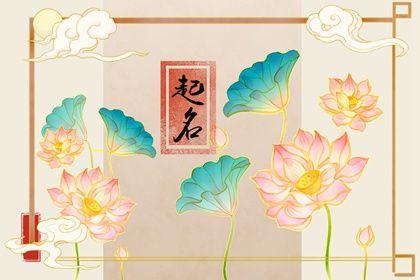
三、如何从古诗词中选取寓意好的名字呢英语
How to Choose Auspicious Names from Classical Chinese Poetry
Classical Chinese poetry is a treasure trove of beautiful and meaningful words and phrases. Many parents turn to poetry when choosing names for their children, hoping to imbue them with auspicious qualities and good fortune. Here are some tips on how to select auspicious names from classical Chinese poetry:
1. Consider the meaning of the words. The most important thing to consider when choosing a name from poetry is the meaning of the words. What do they represent? What qualities do they embody? For example, the name "Li" (pronounced "lee") means "beautiful" or "elegant." The name "Ming" (pronounced "ming") means "bright" or "intelligent."
2. Pay attention to the tone of the words. The tone of the words in a name can also affect its meaning. For example, the name "Li" (pronounced "lee") has a rising tone, which gives it a sense of optimism and hope. The name "Ming" (pronounced "ming") has a falling tone, which gives it a sense of stability and grounding.
3. Consider the overall sound of the name. The overall sound of a name is also important. It should be easy to pronounce and pleasing to the ear. For example, the name "Li Ming" (pronounced "lee ming") has a beautiful and harmonious sound.
4. Get feedback from others. Once you have chosen a few names, it is helpful to get feedback from others. Ask your friends, family, or even a Chinese language teacher what they think of the names. They may have insights that you did not consider.
5. Trust your instincts. Ultimately, the best way to choose a name from classical Chinese poetry is to trust your instincts. If a name feels right to you, then it is probably the right name for your child.
Here are some examples of auspicious names from classical Chinese poetry:
Li Bai (pronounced "lee bye"): This name comes from the famous Tang Dynasty poet Li Bai. It means "beautiful white."
Wang Wei (pronounced "wang way"): This name comes from the famous Tang Dynasty poet Wang Wei. It means "bright and peaceful."
Du Fu (pronounced "doo foo"): This name comes from the famous Tang Dynasty poet Du Fu. It means "abundant blessings."
Su Shi (pronounced "soo shee"): This name comes from the famous Song Dynasty poet Su Shi. It means "great scholar."
Lu You (pronounced "loo yoo"): This name comes from the famous Song Dynasty poet Lu You. It means "wandering traveler."
These are just a few examples of the many auspicious names that can be found in classical Chinese poetry. With a little research, you can find the perfect name for your child that will bring them a lifetime of happiness and success.
四、寓意深刻的古诗词取名字
寓意深远子衿(《子衿》):寓意有志向、有抱负
青莲(《青莲》):寓意高洁、脱俗
子夜(《子夜歌》):寓意深沉、内敛
子规(《子规》):寓意思念、哀愁
子美(《杜甫》):寓意才华横溢、忧国忧民
寓意吉祥长乐(《长乐歌》):寓意长久快乐
安和(《安和》):寓意平安和睦
嘉祥(《嘉祥》):寓意吉祥如意
福寿(《福寿》):寓意福气长寿
康宁(《康宁》):寓意健康平安
寓意美好清风(《清风》):寓意清雅脱俗
明月(《明月》):寓意皎洁明亮
朝阳(《朝阳》):寓意希望、新生
春风(《春风》):寓意温暖、生机
花开(《花开》):寓意繁荣、昌盛
寓意智慧明哲(《明哲》):寓意聪慧明达
睿智(《睿智》):寓意智慧过人
博学(《博学》):寓意学识渊博
思远(《思远》):寓意目光长远
知微(《知微》):寓意洞察细微
寓意坚强刚毅(《刚毅》):寓意坚强不屈
坚韧(《坚韧》):寓意意志坚定
不屈(《不屈》):寓意永不言败
志坚(《志坚》):寓意志向坚定
毅力(《毅力》):寓意坚持不懈



